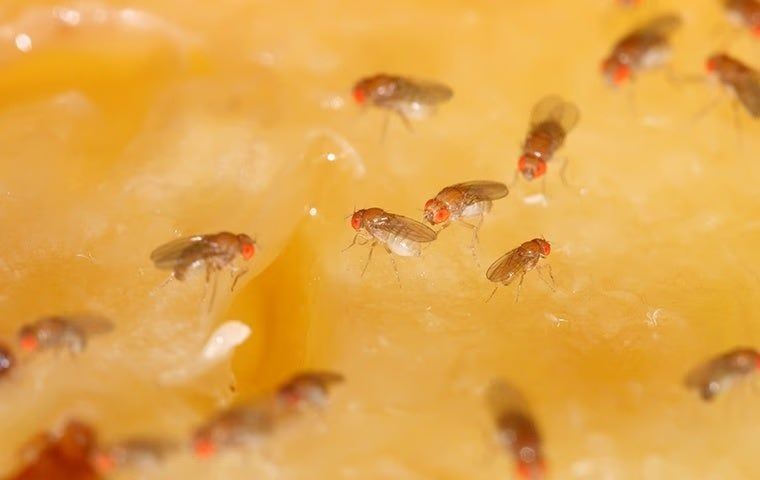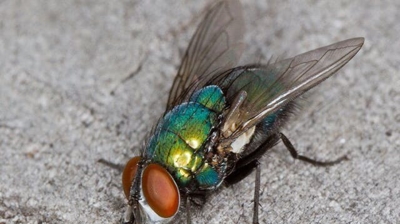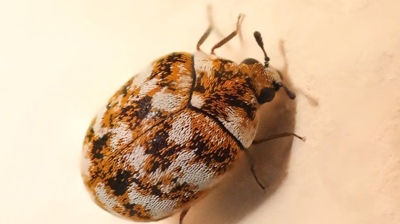
Flies Identification & Prevention
Frequently Asked Questions about Flies
Have questions? We are here to help. Still have questions or can't find the answer you need? Give us a call at 252-424-7966 today!

-
How can I prevent flies in the future?
Prevent problems with flies in Elizabeth City, NC, and surrounding areas by combining our professional services with the following prevention tips:
- Inspect all produce for fruit flies before purchasing it from the store or farmer's market.
- Store all food either in containers with airtight lids or inside the refrigerator.
- Place tight-fitting lids on trash cans and compost bins.
- Maintain drains and keep them free of clogs.
- Wash dirty dishes daily.
- Regularly clean up after pets.
- Make sure door and window screens are intact.
- Use a caulking gun to seal cracks in the foundation and exterior walls.
- Make sure outdoor trash cans and compost bins have locking or tight-fitting lids.
- Remove access to water by maintaining gutters, fixing leaky hoses, and filling in low-lying areas on your property.
-
How do I get rid of flies?
Professional home pest control is the best way to eliminate pests and keep them from returning. At Albemarle Termite & Pest Control, our pest management professionals are highly trained and dedicated to providing safe and effective services that are affordable. We are a local, family-owned Elizabeth City pest control company whose number one priority is putting our customers first and exceeding their expectations. To eliminate pests from your home or business once and for all, contact Albemarle Termite & Pest Control today!
-
Where will I find flies?Flies breed and feed in compost, trash, gardens, and excrement. Flies living near homes and businesses will eventually find their way into your building through cracks and gaps in the exterior. Once flies are inside your home or business, they will gather in the kitchen, pantry, and other areas of food storage or preparation.
-
Why do I have a fly problem?Flies can become a problem anywhere. They live in the suburbs, rural areas, and large urban centers. All that is necessary for flies to survive is access to food and breeding sites. Things like garbage, decaying vegetation, meat, excrement, fruits, vegetables, carrion, and fermenting liquids all attract flies. Most species of flies find their way into homes and other buildings on their own. Fruit flies are a species that are often accidentally introduced into homes on infested fruits and vegetables purchased from a store.
-
Are flies dangerous?
Flies are dangerous pests because of the many health risks they create. Most species of flies are filth flies. Filth flies feed on and lays their eggs in things like garbage, carrion, compost, manure, and other moist, decaying organic materials that their larvae will then consume. This lifestyle causes them to come into contact with bacteria and pathogens that spread food poisoning and dysentery. The only species in our area not associated with filth is the cluster fly. Cluster flies feed on plant sap and nectar. Additionally, cluster flies do not lay their eggs on or feed on rotting organic materials. Instead, they lay their eggs on earthworms that their larvae will similarly consume.
-
What are flies?
Flies belong to the insect order Diptera, which means “two wings.” Flies are prolific breeders, and an infestation can overtake any residential or commercial property. Most flies are scavengers and help to speed up the process of breaking down decaying matter, which is beneficial. When flies live near people, however, they pose significant health risks.
The most common species of flies to invade homes and businesses in our areas of North Carolina and Virginia are listed below.



